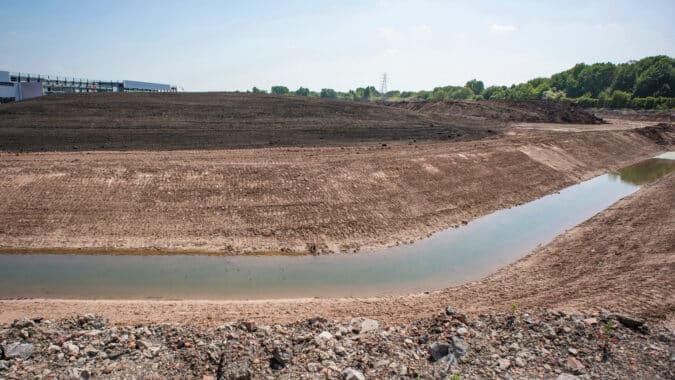New Jersey’s next governor will find a state better able to withstand a natural disaster, better prepared to meet new threats like cybersecurity, and well-equipped to be a leader in solar energy and offshore wind power.
That’s according to Richard Mroz, president of the NJ Board of Public Utilities (BPU), who addressed a joint NJBIA-NJ State Chamber of Commerce audience yesterday. While Mroz’s term as a BPU commissioner will run into the next administration, he knows that much of the board’s work will be directed by whoever is sworn in as governor in January and determines which commissioner serves as president. And he is confident the BPU has laid a solid foundation for whoever that turns out to be.
“I do hope the policies we set out, the initiatives we put in place, are enduring,” he said at the last Meet the Decision Makers Events of the year.
So what will the next administration find?
According to Mroz, energy, water and telecommunications companies have invested about $8 billion collectively to harden infrastructure. This isn’t a coincidence. The BPU updated its energy master plan in 2015 with the goal of addressing the issues that left portions of the state without power for more than a week after Superstorm Sandy.
One product of that is the nation’s first and so far only resiliency bank, which provides funding for onsite generation for critical facilities like hospitals and wastewater treatment plants.
BPU also has adopted a set of comprehensive cybersecurity requirements for the regulated utilities to reduce the ability of hackers to interfere with the delivery of services and to protect customers’ information.
“We needed to look at the threats, across the board: Not just weather events but events that might come from intentional acts, like cybersecurity,” Mroz said.
He also took issue with those who say the administration is not doing enough to establish an offshore wind program. BPU has developed regulations and has two developers moving ahead with projects, but it is a complicated and time-consuming process. Right now, site assessments need to be completed, and inter-connection studies that have not even been filed yet will need to be reviewed, Mroz said.
Meanwhile, New Jersey continues to be a leader in solar energy. Mroz said BPU has spurred $2.5 billion investments in solar energy. New Jersey is No. 2 in the country on rooftop solar employment and No. 4 for all solar employment in the country.
All of this was accomplished with what Mroz characterized as a very realistic approach. The BPU fulfilled core mission to make sure the industries it regulates are healthy, able to deliver what they are supposed to and do it at a reasonable cost.
“Because at the end of the day, you gotta pay that bill,” Mroz said.
“That’s a balancing issue every day,” he added. “Because it’s not the least cost, it’s the most reasonable cost.”
